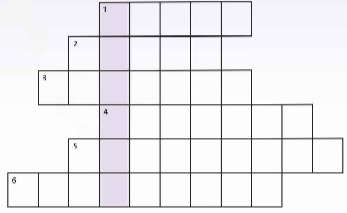Complete the text with the words and phrases.Finally – Furthermore – suggests – I believe – in favour of – In the first placeIf multilingual devices were widely used in daily life, would we need to learn English?The need to communicate worldwide (1) _____ popularising the wide use of multilingual devices. However, I am definitely (2) _____ learning English because human communication cannot be carried out by technology alone. Moreover, English is currently widely spoken and is one of the key lan...
Đọc tiếp
Complete the text with the words and phrases.
Finally – Furthermore – suggests – I believe – in favour of – In the first place |
If multilingual devices were widely used in daily life, would we need to learn English?
The need to communicate worldwide (1) _____ popularising the wide use of multilingual devices. However, I am definitely (2) _____ learning English because human communication cannot be carried out by technology alone. Moreover, English is currently widely spoken and is one of the key languages of international business, scientific research, etc.
Learning a foreign language including English has many benefits. (3) _____, it improves intelligence and memory, lowers the risk of brain aging and Alzheimer’s disease. (4) _____, it develops soft skills such as problem-solving skill. (5) _____, knowing English has practical advantages in various situations. In fact, multilingual devices can translate accurately in terms of grammar, vocabulary but they cannot understand cultural contexts to know the real meaning of words in a certain context. In business settings, it can build stronger relationships when discussions are carried out through the same language without the use of a multilingual device.
In summary, (6) _____ that multilingual devices can make communication easier, but learning English still brings about great benefits in terms of cognitive development and practical applications.







1. Scientists now think that there is water on Mars. That’s an amazing discovery.
(Các nhà khoa học hiện nay cho rằng có nước trên sao Hỏa. Đó là một khám phá tuyệt vời.)
Giải thích: cụm danh từ “a amazing _____” => cần điền danh từ
2. Ava developed some great ideas for our design project. She has a fantastic imagination.
(Ava đã phát triển một số ý tưởng tuyệt vời cho dự án thiết kế của chúng tôi. Cô ấy có một trí tưởng tượng tuyệt vời.)
Giải thích: cụm danh từ “a fantastic _____” => cần điền danh từ
3. Scientists want to explore the Amazon and look for new types of animals and plants.
(Các nhà khoa học muốn khám phá Amazon và tìm kiếm các loại động vật và thực vật mới.)
Giải thích: cấu trúc: want + to V nguyên thể: muốn làm gì => cần điền động từ
4. Hezârfen Ahmed Çelebi created a new invention in the 17th century – it was a set of special ‘bird wings’ that he could fly with.
(Hezârfen Ahmed Çelebi đã tạo ra một phát minh mới vào thế kỷ 17 – đó là một bộ ‘cánh chim’ đặc biệt mà ông có thể dùng để bay.)
Giải thích: cụm danh từ “a new _____” => cần điền danh từ
5. Could you adapt to living in space?
(Bạn có thể thích nghi với cuộc sống trong không gian không?)
Giải thích: cấu trúc: Could + S + V nguyên thể + …?: Ai đó có thể làm gì không? => cần điền động từ
6. The two governments want to work together and create a space programme.
(Chính phủ hai nước mong muốn hợp tác và xây dựng một chương trình không gian.)
Giải thích: cấu trúc: want + to V nguyên thể: muốn làm gì => cần điền động từ
Trả lời bởi datcoder